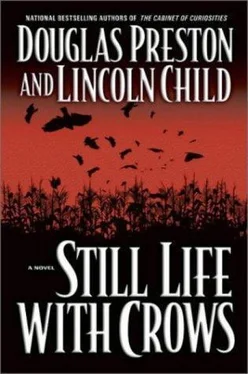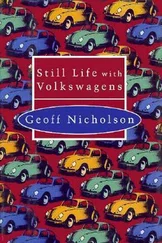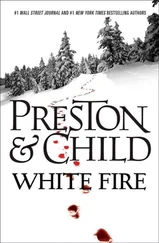Douglas Preston - Still Life With Crows
Здесь есть возможность читать онлайн «Douglas Preston - Still Life With Crows» весь текст электронной книги совершенно бесплатно (целиком полную версию без сокращений). В некоторых случаях можно слушать аудио, скачать через торрент в формате fb2 и присутствует краткое содержание. Жанр: Триллер, на английском языке. Описание произведения, (предисловие) а так же отзывы посетителей доступны на портале библиотеки ЛибКат.
- Название:Still Life With Crows
- Автор:
- Жанр:
- Год:неизвестен
- ISBN:нет данных
- Рейтинг книги:5 / 5. Голосов: 1
-
Избранное:Добавить в избранное
- Отзывы:
-
Ваша оценка:
- 100
- 1
- 2
- 3
- 4
- 5
Still Life With Crows: краткое содержание, описание и аннотация
Предлагаем к чтению аннотацию, описание, краткое содержание или предисловие (зависит от того, что написал сам автор книги «Still Life With Crows»). Если вы не нашли необходимую информацию о книге — напишите в комментариях, мы постараемся отыскать её.
Still Life With Crows — читать онлайн бесплатно полную книгу (весь текст) целиком
Ниже представлен текст книги, разбитый по страницам. Система сохранения места последней прочитанной страницы, позволяет с удобством читать онлайн бесплатно книгу «Still Life With Crows», без необходимости каждый раз заново искать на чём Вы остановились. Поставьте закладку, и сможете в любой момент перейти на страницу, на которой закончили чтение.
Интервал:
Закладка:
Hazen waited. Better to let Hank blow off a little steam.
“This is ridiculous! I can’t imagine anyone here brutally murdering three people over a damn cornfield.”
“It’s a lot more than a ‘damn cornfield,’ ” said Hazen coolly, “as I’m sure Professor Fisk can tell you.”
Fisk nodded.
“This project is important. There’s big money in it, for the town and for KSU. Buswell Agricon is one of the biggest agricultural companies in the world. There are patents, royalties, laboratories, grants, you name it, up for grabs here. So Hank, I’ll ask you the question again: who in Deeper had the most to lose? ”
“I’m not going to open an investigation on the basis of a crackpot theory.”
Hazen smiled. “You don’t have to, Hank. I’m in charge of the case. I’ll open the investigation. All I ask is your cooperation.”
Larssen turned to Fisk and Raskovich. “Here in Deeper, we don’t habitually send law enforcement off on wild-goose chases.”
Fisk returned his gaze. “Frankly, what Sheriff Hazen is saying makes sense to me.” He turned to Raskovich. “What do you think, Chester?”
When Raskovich spoke, the sound came from deep within his barrel chest. “I’d say it’s definitely worth looking into.”
Larssen looked from one to the other. “We’ll look into it, of course, but I sincerely doubt the killer is going to turn up here. This is premature—”
Hazen broke in smoothly. “Dr. Fisk, with all due respect, I think you should keep your options open as to where the field should be sited. If the killer’s been trying to influence your decision . . .” He paused significantly.
“I certainly see your point, Sheriff.”
“But the decision’s already been made,” Larssen said.
“Nothing is engraved in stone,” said Fisk. “If the killer’s from Deeper—and I have to say the theory stacks up nicely—then, frankly, this is the last place we’d want to site the field.”
Larssen shut up. He was smart enough to know when to do that, at least. He gazed at Hazen, his face dark. Hazen felt sorry for him. He wasn’t a bad guy, really, even if he was a little short on both brains and imagination.
Hazen rose. “I have to get back to Medicine Creek—we’ve still got a body to find—but I’m coming back first thing tomorrow to start my investigation. Hank, I hope we can work together in a friendly way.”
“Sure we can, Dent.” Hank had to choke out the words.
Hazen turned to the KSU men. “Nice to meet you. I’ll keep you posted.”
“We appreciate that, Sheriff.”
Hazen plucked a pack of cigarettes from his pocket and fixed an eye on Raskovich. “When you get to Medicine Creek, come by my office. We’ll see about getting you temporary peace officer status. It’s the modern-day equivalent of being deputized. We’re going to need your help, Mr. Raskovich.”
The campus security chief nodded as if this were the most normal thing in the world, his face a mask of stolidity, but Hazen knew he had just scored big with Chief Campus Doorshaker Chester Raskovich.
Thirty-Eight
T he discipline of Chongg Ran, invented by the Confucian sage Ton Wei in the T’ang dynasty, was later transported from China to Bhutan, where it was further refined over a period of half a millennium at the Tenzin Torgangka monastery, one of the most isolated in the world. It is a form of concentration that marries utter emptiness with hyperawareness, the fusion of rigorous intellectual study with pure sensation.
The first challenge of Chongg Ran is to visualize white and black simultaneously —not as gray. Only one percent of adherents are able to move beyond this point. Far more difficult mental exercises await. Some involve simultaneous, self-contradictory imaginary games of Go, or more recent studious pastimes such as chess or bridge. In others, one must learn to fuse knowledge with nescience, sound with silence, self with annihilation, life with death, the universe with the quark.
Chongg Ran is an exercise in antitheses. It is not an end in itself, but a means to an end. It brings with it the gift of inexplicable mental powers. It is the ultimate enhancement of the human mind.
Pendergast lay on the ground, maintaining acute awareness of his surroundings: the smell of dry weeds, the feeling of sticky heat, the stubble and pebbles pressing into his back. He isolated every individual sound, every chirp, rustle, flutter, whisper, down to the faint breathing of his assistant sitting some yards away. With his eyes closed, he proceeded to visualize the surrounding scene exactly as if he were seeing it with his own eyes, spread out below him: sight without seeing. Piece by piece he assembled it: the trees, the three mounds, the play of shade and light, the cornfields stretching out below, the towering thunderheads above, the air, the sky, the living earth.
Soon the landscape had taken complete form. And now, having isolated each object, one by one he could extinguish them from his awareness.
He started with scents. He removed, one by one, the complex perfumes of the cottonwood trees, humidity, ozone from the approaching storm, the grass and leaves and dust. Then, sensation: he proceeded to extinguish, one at a time, every feeling impinging on his consciousness: the pebbles under his back, the heat, the crawling of an ant over his hand.
Next came sound. The trillings of the insects disappeared first, then the rustling of the leaves, the desultory tapping of a woodpecker, the fluttering and calling of the birds in the trees, the faint movement of air, the distant rumble of thunder.
The landscape still existed, but now it was a tableau of absolute silence.
Next, he suppressed in himself the very sensation of corporeality, that innate feeling of having a body and knowing where that body is in space and time.
Now the real concentration began. One by one, Pendergast removed each object in the landscape. He stripped it away, in the reverse order of its arrival. First the road disappeared, then the corn, then the trees, the town, the grass, the rocks, then the very light itself. A mathematically pure landscape was left: bare, empty, dark as night, existing only in form.
He waited five minutes, then ten, holding this empty fractal perfection in his head, preparing himself. And then, slowly, he began to put the landscape back together; but it would not be the same landscape he had just stripped away.
First the light returned. Then the grass rolled over the landscape, virgin tallgrass prairie dotted with prairie aster, wild poppies, cornflowers, rocketweed, and lupine. Then he piled back the bronze mountains of cloud, the rocky outcrops, the shady creek wandering free across the Great Plains. Now other things began to take shape: a herd of buffalo in the far distance; shallow water pans blazing silver in the late afternoon light; and everywhere an infinite array of wild grasses, undulating from horizon to horizon like a great rippling sea of green.
A thread of smoke came up from below. There were black dots of people moving about, a few ragged tents. Fifty horses were grazing the bottomlands by the creek, their noses in the grass.
Slowly, Pendergast permitted first the sounds, and then the smells, to return: voices laughing and cursing; fecund humidity; the whiff of woodsmoke and roasting buffalo steaks; the distant whinny of a horse; the jingle of spurs and the clank of cast iron cookware.
Pendergast waited, watchful, all senses alert. The voices became clearer.
Didier’s buckskin come up lame again, said a voice.
The chunk of wood on fire. Chuck’s about ready.
That boy wouldn’t know where to piss less’n his mammy aimed his dingus for him.
Читать дальшеИнтервал:
Закладка:
Похожие книги на «Still Life With Crows»
Представляем Вашему вниманию похожие книги на «Still Life With Crows» списком для выбора. Мы отобрали схожую по названию и смыслу литературу в надежде предоставить читателям больше вариантов отыскать новые, интересные, ещё непрочитанные произведения.
Обсуждение, отзывы о книге «Still Life With Crows» и просто собственные мнения читателей. Оставьте ваши комментарии, напишите, что Вы думаете о произведении, его смысле или главных героях. Укажите что конкретно понравилось, а что нет, и почему Вы так считаете.












